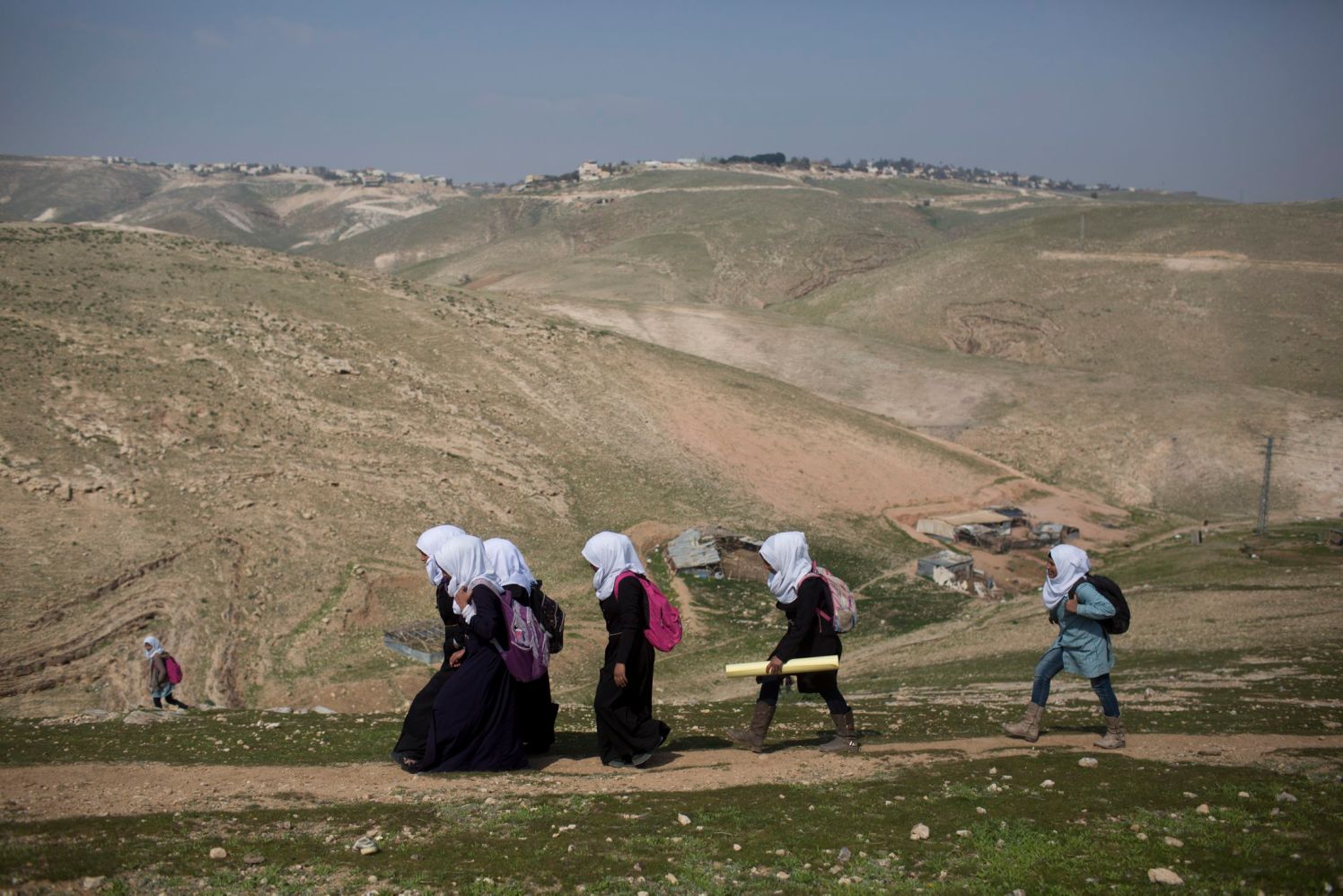Civil Administration set to approve building in Kfar Adumim, less than a mile from Khan al-Ahmar – whose demolition was approved by the High Court last week

Israel’s Civil Administration is set to approve the construction of 92 new homes for the West Bank settlement of Kfar Adumim on Wednesday. The new neighborhood will be located just a kilometer (0.6 miles) from the Bedouin village of Khan al-Ahmar, whose demolition was approved by the High Court of Justice last week.
The plan slated for approval by the Civil Administration’s Higher Planning Council covers an area of 122 dunams (30 acres). It is part of a larger plan, comprising 322 new homes on 660 dunams, which passed the first stage of its approval process in February 2017. The new neighborhood will be called Nofei Bereishit.
Nofei Bereishit will connect the settlement’s existing neighborhoods with a planned educational campus slated to serve all the settlements in the area. The campus’ architect is Ronnie Goldschmidt, with funds coming from the World Zionist Organization Settlement Division.
The land is defined as state land, but the plan explicitly says the plots earmarked for construction are on the lands of the Palestinian village of Anata.
Last Thursday, justices Noam Sohlberg, Yael Willner and Anat Baron approved the demolition of all the huts, tin shacks and animal pens in the Jahalin Bedouin village of Khan al-Ahmar, including a school made of tires that was built a decade ago.
The Jahalin Bedouin have lived in the area since Israel expelled them from the Negev following the War of Independence in 1948. They have been in their current location since before Kfar Adumim was established. Despite this, the state refused to include them in the master plans it prepared for Israeli settlers. Consequently, the buildings that the justices deemed illegal were all built without permits.
Over the years, Kfar Adumim has submitted four petitions to the High Court demanding that demolition orders issued against Khan al-Ahmar be implemented. The first three petitions were rejected on the grounds that the state implements such orders based on its own judgment and order of priorities. The fourth became superfluous after the state announced its intention to demolish the village and force the residents to relocate to plots near a garbage dump in Abu Dis, outside Jerusalem.
Willner has a brother and sister who live in Kfar Adumim. Nevertheless, she didn’t offer to recuse herself from hearing the case. Willner, Sohlberg and Baron subsequently rejected a request by the Bedouin villagers’ attorney, Shlomo Lecker, that she do so. Justice Neal Hendel then rejected Lecker’s appeal of this refusal.
“This is the evil and ugliness of the occupation in a nutshell – evicting one group in order to allow the other to enjoy ‘Nofei Bereishit,’” said Peace Now’s Hagit Ofran, referring to both the planned new neighborhood and the meaning of its Hebrew name, “The landscapes of Genesis.”
“They’re destroying Khan al-Ahmar because they didn’t give them building permits,” she said. “Now it turns out that the Israeli government has no problem with issuing permits for this land – just not to Palestinians.”
At Wednesday’s meeting, the Higher Planning Council’s subcommittee on settlements will discuss 31 plans for new homes in West Bank settlements in the space of just two and a half hours – or five minutes for every plan.
Most of the plans have reached the stage at which they can be given final approval. Others will be advanced to the preliminary stage of the approval process, when the plans are made public so that the public can submit objections. Many of the plans involved the rezoning the land from agricultural to residential use.
The area covered by each plan is noted as sitting on the lands of one or more Palestinian villages, which are identified by name. For instance, between 11:05 and 11:10 A.M., the subcommittee will discuss expanding neighborhoods of Nokdim, which is where Defense Minister Avigdor Lieberman lives. The plan received preliminary approval in February 2015 and was published in the media last November. It would add 76 new homes, covering an area of 88 dunams, which sit on lands belonging to the village of Arab al-Taamra.
Last week, Lieberman announced his intention to submit plans for 2,500 new homes in the settlement for immediate approval, so they can be built this year.
